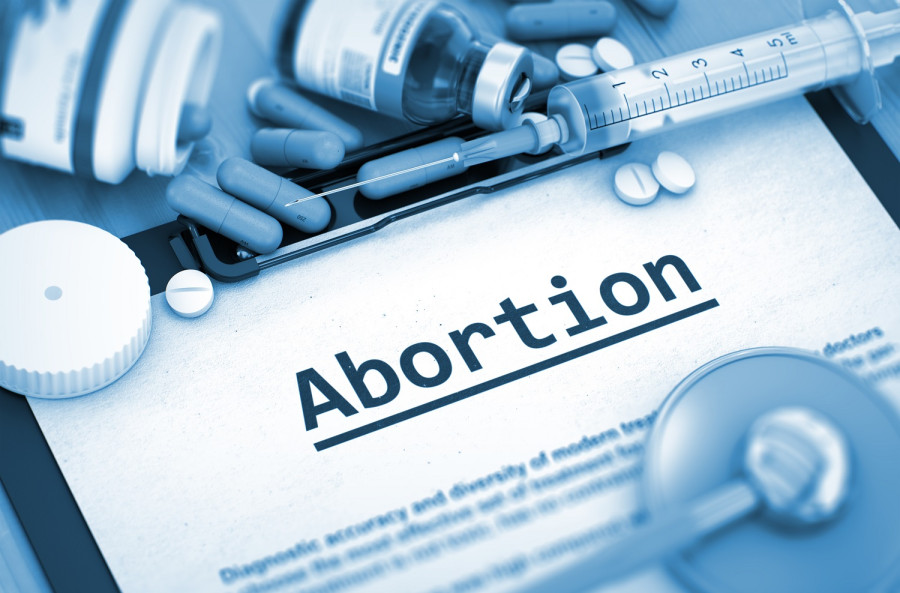Editorial
Lifeline for women
Research shows that restricting access to abortion services doesn’t work.
In 2017, following the Trump administration’s reinstatement of the anti-abortion ‘Mexico City Policy’ or the 'global gag rule', Nepal’s important development partner, the United States Agency for International Development, discontinued funding to foreign non-governmental organisations that provided abortion services or counselling. According to MSI Reproductive Choices, formerly Marie Stopes International, the policy had consequences for women, especially in the developing countries where the policy led to closures of life-saving services, a record rise in unintended pregnancies and unsafe abortions.
In Nepal, the effects of the global gag rule have been catastrophic for women’s health as this paper, in collaboration with BuzzFeed News, reported in 2019. Discontinued funding led to staff reductions and closure of clinics in nearly a dozen districts across the country. Clinic closures or a decrease in women’s access to sexual and reproductive health care can lead to unintended pregnancies, unsafe abortions and maternal deaths in the developing countries, as shown by a recent study undertaken during the pandemic by the Guttmacher Institute.
In the wake of the global gag rule, the Family Planning Association of Nepal, the country’s first sexual and reproductive health agency, closed its outreach services in 11 districts. MSI, one of Nepal’s largest sexual and reproductive health service providers, also closed its outreach services in 11 other districts. Simultaneously, any discourse and advocacy about consent, contraception and HIV also disappeared due to fears of budget cuts, creating a fertile space for misinformation and anti-abortion groups.
The biggest obstacle the policy created in Nepal was that it stigmatised abortion and created an information vacuum around women’s health, which hit women in rural Nepal particularly hard. As a result, women and children have died, and their lives continue to be at risk while women have been unable to exercise their legal rights over their bodies and give birth by choice.
According to Nepal Demographic and Health Survey 2016, women seeking safe abortions have to seek permission to visit doctors, do not have the money for advice or treatment, and often travel long distances alone to visit a health facility. This is an unacceptable situation in a country where abortion was legalised and provided free of cost at government health institutions after a long campaign by activists, doctors and public health agencies.
Women should not have to resort to unsafe practices and further complicate their situation. Multiple studies show that less than 50 percent of the women who had abortions chose safe abortions while the rest went to unregistered health institutions and health workers. The government needs to increase awareness around abortion and sexual and reproductive health. It should do more to reach out to women in rural areas, where counselling and dispensing safe services are more critical because of the taboos around women’s health.
The government has to take one step ahead and ensure that essential sexual and reproductive health services and their easy access to women are foolproof. It must initiate an action plan at the grassroots level and instil important health and rights issues in the national curriculum. The lockdown has exposed how easily our health systems can crumble, but it has also taught us to explore and apply technology to develop innovative services. We can’t afford not to learn, especially when lives are at stake.
Untold damage has been done, and many preventable deaths have occurred simply because of a policy failure, both nationally and internationally. Research shows that restricting or decreasing access to abortion services doesn’t work. It only makes things worse for women as they seek alternatives, which can even kill them.
As past Democratic presidents in the US have done, President Joe Biden is set to revoke the deadly rule in the coming days. A decision that will cover funding worth billions of dollars for life-saving services to thousands of women and reinforce that reproductive rights are human rights and help undo the damage and devastating consequences the anti-abortion policy has brought in the world and in our country. But we do not know what the new US administration will do next, and neither should we wait.




 9.6°C Kathmandu
9.6°C Kathmandu














